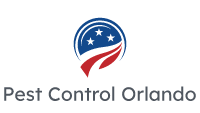Title: «Pest Control Obligations for Landlords in Missouri: Know Your Rights»
Introduction:
If you’re a tenant or landlord in the state of Missouri, understanding the responsibility for pest control is crucial. This article examines whether landlords have to pay for pest control and highlights the relevant laws and regulations. By knowing your rights, you can ensure a pest-free living environment.
Do Landlords in Missouri Need to Cover Pest Control Expenses: Insights from Pest Control Orlando
Frequent Questions
Are landlords legally obligated to pay for pest control services in Missouri rental properties?
In Missouri, landlords are generally not legally obligated to pay for pest control services in rental properties. However, this may vary depending on the terms of the lease agreement. It is common for landlords to include specific clauses in the lease regarding pest control responsibilities.
If a landlord includes a clause in the lease that states they will cover the cost of pest control services, then they would be legally obligated to do so. Similarly, if the rental property becomes uninhabitable due to a severe pest infestation, it may be considered the landlord’s responsibility to resolve the issue.
It is essential for both tenants and landlords to carefully review the lease agreement to understand their respective responsibilities regarding pest control. It is advisable for tenants to promptly report any pest problems to the landlord or property manager, and for landlords to address these issues in a timely and effective manner to maintain tenant satisfaction and comply with local housing laws.
What are the responsibilities of landlords regarding pest control in rental properties in the state of Missouri?
In the state of Missouri, landlords have certain responsibilities regarding pest control in rental properties. It is crucial for landlords to maintain a habitable and pest-free environment for their tenants.
Here are some of the key responsibilities of landlords:
1. Pest Prevention: Landlords are expected to take preventative measures to minimize the risk of pests in rental properties. This includes regular inspections, sealing cracks and gaps, proper waste management, and maintaining cleanliness.
2. Prompt Repairs: Landlords should address any structural issues or necessary repairs that can contribute to pest infestations promptly. This involves fixing leaking pipes, repairing damaged window screens, and ensuring proper ventilation.
3. Pest Extermination: If a pest infestation occurs due to factors beyond the tenant’s control, such as pre-existing conditions or neighboring units, it is generally the landlord’s responsibility to hire a professional pest control company to eliminate the pests. This includes treatments for rodents, insects, or other pests.
4. Tenant Education: Landlords should educate tenants on proper waste disposal, cleanliness practices, and how to prevent pests from entering the rental unit. This helps create a cooperative effort between landlords and tenants in maintaining a pest-free environment.
It is important to note that the specific responsibilities of landlords may vary depending on the lease agreement, local ordinances, and state laws. Tenants should refer to their lease agreement and consult with local authorities or legal professionals if they believe their landlord is not fulfilling their pest control responsibilities.
Overall, landlords in Missouri have the obligation to provide safe, healthy, and pest-free living conditions for their tenants.
Can tenants request landlords to cover the expenses for pest control treatments in Missouri rental properties?
Tenants in Missouri rental properties have the right to live in a safe and habitable environment, free from pest infestations. The responsibility for pest control in rental properties is typically outlined in the lease agreement or rental contract.
In most cases, landlords are responsible for ensuring that the rental property is free from pest infestations at the time of move-in. However, if a pest problem arises during the tenancy, tenants should promptly notify their landlord or property management company.
In Missouri, tenants can request their landlords to cover the expenses for pest control treatments if the infestation is not caused by the tenant’s negligence or failure to maintain cleanliness. It is important for tenants to document the pest problem, including photographs and written reports, to establish the existence of the infestation and demonstrate that they have fulfilled their responsibilities as tenants.
Tenants should communicate their concerns in writing to their landlord, specifying the type of pest problem and requesting immediate action to resolve it. It is recommended to send the letter via certified mail or email to have a record of the communication.
If the landlord fails to address the pest problem or refuses to cover the expenses for pest control treatments, tenants may have legal recourse. They can seek assistance from local health departments, housing authorities, or tenant advocacy organizations to understand their rights and explore potential remedies.
It is important for tenants to familiarize themselves with the specific laws and regulations regarding pest control in Missouri to ensure they are aware of their rights as renters. Consulting with a legal professional specializing in tenant-landlord issues can provide further guidance and assistance in navigating this matter.
In conclusion, landlords in the state of Missouri are generally not required to pay for pest control services. However, it is crucial for both landlords and tenants to carefully review their lease agreements to determine if there are any specific provisions regarding pest control responsibilities. While the landlord may not have a legal obligation to cover pest control expenses, it is in their best interest to promptly address any infestations to maintain a safe and habitable living environment. Additionally, tenants should report any pest issues to their landlord as soon as possible to avoid further property damage and health risks. Remember, open communication and proactive measures are key to addressing pest control concerns effectively.
